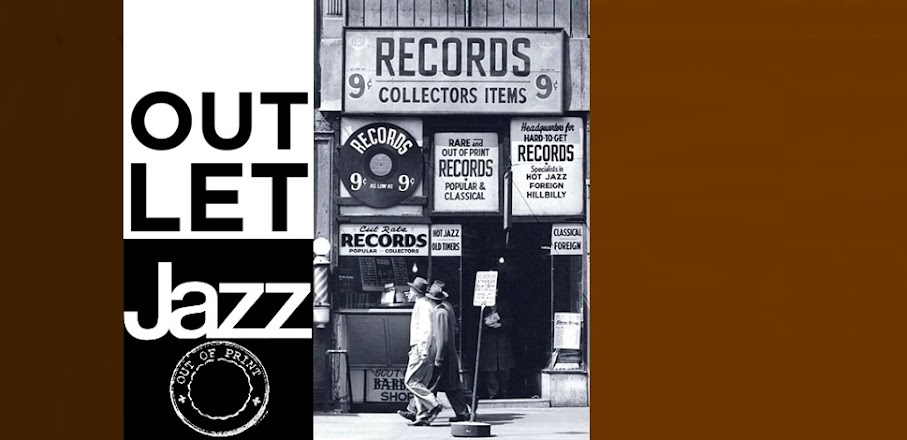George Russell
The RCA Victor Jazz Workshop
In the latest and most exciting of RCA’s Workshop series, arranger George Russell has managed to prove several points concerning what is sometimes known as "far-out" jazz that may have bothered a number of listening laymen and musicians. First, the music in almost every piece swings just the way conventional jazz swings. Second, true improvisation abounds and there is the sense of organized looseness that one finds in the more tonal jazz combos. Third, the works are neither too long nor overpretentious structurally, as has so frequently been the case with experiments of this kind. Fourth, they have a challenging sense of form without stiffness or overorganization. Fifth, one never has to worry about intonation or any aspect of musicianship or performance; clearly the quality of the personnel and the quantity of rehearsal met the stern demands of Russell’s writing. Sixth, the writing is harmonically venturesome without resorting either to complete atonality or to the Schoenberg mathematics of the juggled twelve-tone row.
It is on this last level that Russell has succeeded completely in lifting his album to a unique status and stature. His writing is based on the "Lydian concept of tonal organization", a theory on which he has worked for years, which was heard in his sole track on the Teddy Charles Atlantic LP, and which unfortunately George completely fails to explain here in his well-intentioned but elliptical liner notes.
Obviously nothing as radical as this can be summed up in a sentence, but one of the basic factors is the building of keys by picking the notes in rising fifths; thus the notes in the key of C are C, G, D, A, E, B, and F Sharp. There is a great deal more to it than that, but we’re saving it for a feature story in which George will try to elucidate a little. Suffice it for now that there is a sense of tonality, of the feeling of a certain root in every passage. One of the pieces, "Ezz-Thetic", because it was written some years ago, is closer to normal tonal jazz than the other tracks. There is a Tristano-like air to the ensemble unisons in this number and to "Knights of the Steamtable".
The moods are many. "Round Johnny Rondo" swings the most. The ethereal "Ballad Of Hix Blewitt" has a simple long-note melody that gives the effect of a distant horizon seen opaquely through a veil. "Fellow Delegates" is the only track on which Russell himself plays, using a set of chromatically tuned drums of California redwood that achieve an odd and attractive garbage-can tone, recalling the Calypso steel drums. "Billy The Kid" packs a mad wallop, especially when Bill Evans spurts out a series of solo breaks as smoothly as a Texas gusher. "The Sad Sergeant" struck me as a little meaningless and pretentious, alone among the dozen tracks; perhaps a week from now it will be my favorite.
Farmer and McKusick acquit themselves superbly; as Hal said, "It was like learning another language", and they both speak it fluently. Galbraith’s comping is as exciting as his solo work. All three rhythm sections cook; Motian is particularly impressive on "Witch Hunt". As you’ll have gathered, I dig Mr. Russell as a jazz composer who has found a new path without going off the main jazz route. Such men must be guarded with care and watched with great expectations.
*Leonard Feather*
1 - Ye Hypocrite, Ye Beelzebub
2 - Jack's Blues
3 - Livingstone, I Presume
4 - Ezz-Thetic
5 - Night Sound
6 - Round Johnny Rondo
7 - Fellow Delegates
8 - Witch Hunt
9 - The Sad Sergeant
10 - Knights Of The Steamtable
11 - Ballad Of Hix Blewitt
12 - Concerto For Billy The Kid
13 - Ballad Of Hix Blewitt (alternate take)
14 - Concerto For Billy The Kid (alternate take)
(All compositions by George Russell)
George Russell (chromatic drums, arranger); Art Farmer (trumpet); Hal McKusick (alto sax, flute); Bill Evans (piano); Barry Galbraith (guitar); Milt Hinton [#1, #2, #3, #4, #5, #6,#8, #12, #14], Teddy Kotick [#7, #9, #10, #11, #13] (basses); Joe Harris [#1, #2, #3, #4], Paul Motian [#5, #6, #8, #12, #14], Osie Johnson [#7, #9, #10, #11, #13] (drums).
Recorded in New York City ; March 31 (#1, #2, #3, #4), October 17 (#5, #6, #8, #12, #14), and December 21 (#7, #9, #10, #11, #13), 1956.


Muchas gracias por esta colección RCA
ReplyDeleteGracias Héctor.
ReplyDeleteMuy interesante la colección y el artículo.
ReplyDeleteMuchas gracias por la serie entera.
ReplyDelete